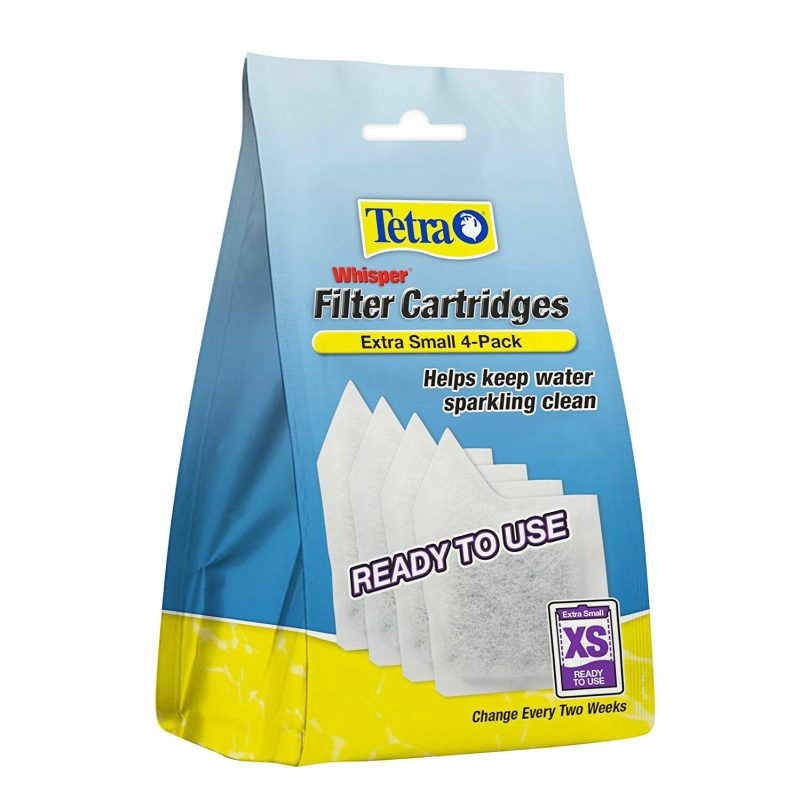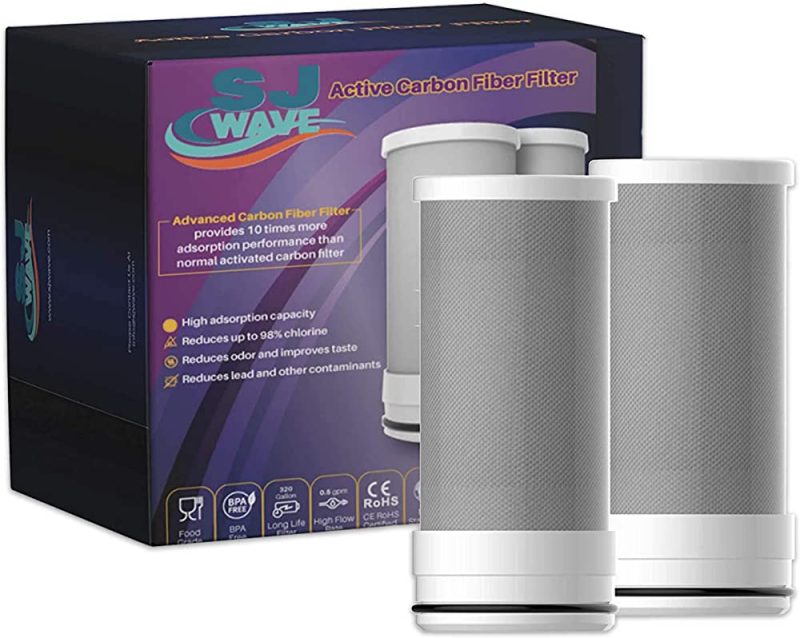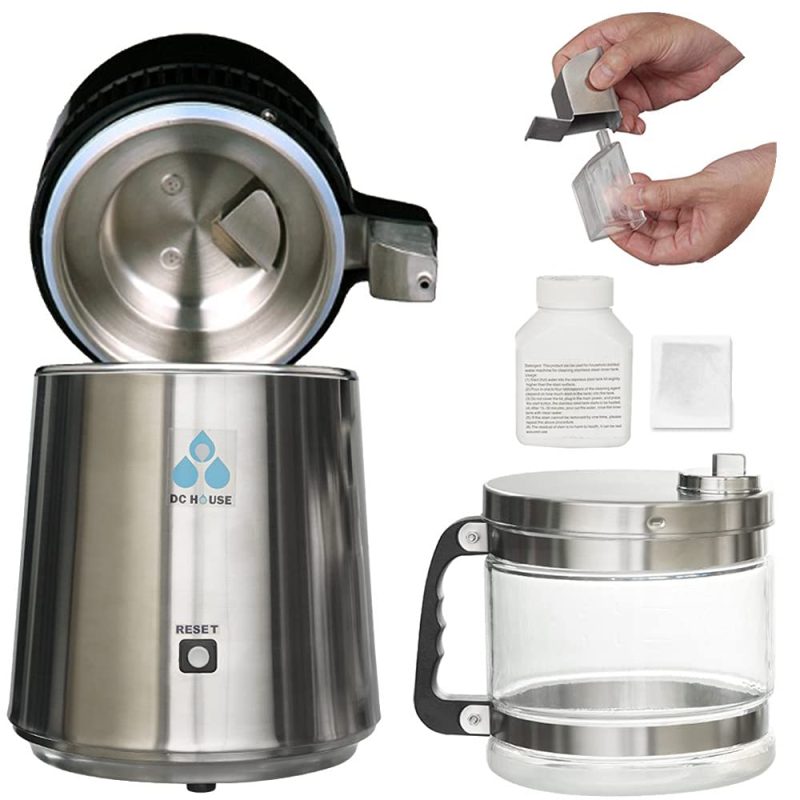This post contains affiliate links. As an Amazon Associate, we earn from qualifying purchases.
A carbon water filter alone may not effectively remove bacteria from water. Bacteria can be smaller than the pores in the activated carbon and may pass through.
However, carbon filters can be used in conjunction with other methods like uv or reverse osmosis to remove bacteria from water. It is crucial to know what type of filtration system to use to effectively eliminate contaminants in the water supply.
With so many types of water filters on the market, it’s essential to research and understand which type can remove specific pollutants. This article will examine whether carbon filters remove bacteria and the role of different filtration methods in producing safe and clean drinking water.

Credit: www.amazon.com
How Carbon Water Filters Work
Carbon water filters are quite popular in homes and offices. They are known for their ability to remove impurities from water by absorbing chemicals like chlorine, sediment, and other particles that give water a bad taste or odor. However, the question of whether carbon water filters remove bacteria remains unanswered.
In this blog post, we will dive deep into how carbon water filters work and explore their effectiveness in removing bacteria.
Understanding The Filtration Process
Before understanding how carbon filters work, let’s briefly touch on how the filtration process works. Water filtration aims to remove impurities from the water by passing it through a filter medium, which can be physical, chemical, or biological. The filter media traps the impurities, while the water passes through, producing clean and safe water for consumption.
The Role Of Activated Carbon In Filtering
Activated carbon is a natural filter medium made from coconut shells, wood, coal, and other organic materials. It is created by heating carbon at high temperatures to induce small pores on its surface, giving it a large surface area for adsorption.
When water passes through the activated carbon filter, the impurities stick to the carbon pores’ surfaces. This is known as adsorption, and it is different from the absorption process where impurities penetrate into the medium. Activated carbon can filter organic compounds, pesticides, and volatile organic compounds (vocs) to some extent, but it might not effectively filter out bacteria.
Comparison Of Carbon Filters With Other Water Filters
There are various water filters available in the market today, each with its unique characteristics. Activated carbon filters work differently than other filters, such as reverse osmosis or ultraviolet (uv) radiation filters. Reverse osmosis filters, for example, can remove dissolved minerals, bacteria, and viruses from water.
Uv radiation filters can kill bacteria and viruses, but they do not remove them from water. Understanding how each filter works is essential to determine the best filter for your needs.
Effectiveness Of Carbon Filters In Removing Bacteria
Carbon water filters can remove some bacteria, but they might not be effective in removing harmful bacteria such as e. coli and salmonella. They only work against bacteria with large particle sizes. The size of bacteria is generally smaller than activated carbon filter pores, which makes it difficult for them to filter out bacteria.
To remove bacteria from water entirely, it’s recommended to use filters that incorporate uv radiation, reverse osmosis, or other purification methods.
Carbon water filters are effective in removing impurities from water, but they might not be as effective in removing bacteria. Understanding the filtration process and the role of activated carbon in water filtering is crucial in deciding which filter is best for your needs.
Always keep in mind that using different filters might be necessary to achieve better results in producing clean and safe water.
Types Of Bacteria In Drinking Water
Carbon water filters are a popular choice for removing impurities from drinking water. The question most people ask is whether a carbon water filter can remove bacteria as well. The answer is yes, but it depends on the type of bacteria present in the water.
In this blog post, we will discuss the different types of bacteria found in drinking water, the health risks associated with them, and the sources of bacteria in drinking water.
Common Bacteria Found In Water
There are several types of bacteria that can be found in drinking water. Here are some of the most common ones:
- E. coli: A type of bacteria that comes from human or animal feces and can cause diarrhea, stomach cramps, and vomiting.
- Salmonella: Another type of bacteria that comes from human or animal feces and can cause diarrhea, fever, and stomach cramps.
- Legionella: A type of bacteria that can cause legionnaire’s disease, a severe form of pneumonia. It can be found in natural water sources like rivers and lakes, as well as in man-made water systems like cooling towers and hot tubs.
- Cryptosporidium: A parasite that can cause gastrointestinal illness. It can be found in both surface and groundwater sources.
Health Risks Associated With Bacteria In Water
Bacteria found in drinking water can cause several health risks, including:
- Gastrointestinal illness: The most common health risk associated with bacteria in water is diarrhea, stomach cramps, and vomiting, which can lead to dehydration and even death in severe cases.
- Pneumonia: Some types of bacteria found in water, like legionella, can cause pneumonia, which is a severe lung infection that can be life-threatening if left untreated.
- Flu-like symptoms: Other types of bacteria, like salmonella, can cause flu-like symptoms like fever, headache, and body ache.
Sources Of Bacteria In Drinking Water
There are several sources of bacteria in drinking water:
- Human and animal feces: The most common source of bacteria in drinking water is human and animal feces. It can contaminate surface water sources like rivers and lakes, as well as groundwater sources like wells.
- Sewage: Wastewater treatment plants can be a source of bacteria if the treated water is not disinfected properly before it is released back into the environment.
- Agricultural runoff: Fertilizers and animal manure used in agriculture can contaminate surface and groundwater sources with bacteria.
- Natural sources: Bacteria can be present in natural water sources like rivers and lakes.
A carbon water filter can remove bacteria from drinking water, but it depends on the type of bacteria present in the water. Carbon filters are effective against most types of bacteria found in drinking water, but they may not be effective against all types.
It’s important to choose a water filter based on the specific contaminants in your water source.
Benefits And Limitations Of Carbon Water Filters
Carbon water filters have become increasingly popular due to their ability to remove impurities in water, leading to better-tasting and healthier drinking water. However, many people wonder whether carbon water filters also remove bacteria. In this blog post, we’ll explore the benefits and limitations of carbon water filters and find out whether they are effective in eliminating harmful bacteria.
Advantages Of Carbon Water Filters
Carbon water filters offer various benefits that make them a popular choice for many households. Here are some of the key advantages of using carbon water filters:
- Removes most impurities: Carbon filters are known for their ability to remove a wide range of impurities, including chlorine, sediment, and volatile organic compounds (vocs). This is because activated carbon has a large surface area and is porous in nature, allowing it to absorb and trap impurities effectively.
- Improves taste and odor: One of the most significant advantages of carbon water filters is that they can improve the taste and odor of water by removing unpleasant smells and tastes caused by chemicals such as chlorine and sulfur. This makes carbon filters a great choice for those who do not like the taste of tap water.
- Easy to install and maintain: Carbon water filters are relatively easy to install and maintain, making them a convenient option for those who want a hassle-free filtration system. Most carbon water filters can be installed directly onto faucets, and the filter cartridges can be easily replaced when necessary.
Limitations Of Carbon Water Filters
While carbon water filters offer many benefits, they are not without limitations. Here are some of the key limitations of using carbon water filters:
- Does not remove all impurities: While carbon filters are effective at removing many impurities, they may not be able to filter out certain contaminants such as fluoride, nitrates, and bacteria. This means that a carbon filter may not be the most suitable filtration system for those who want to remove specific contaminants from their water.
- Limited lifespan: Carbon water filters have a limited lifespan, and the filter cartridges must be replaced regularly. The frequency of cartridge replacement depends on the usage and the level of impurities in the water. This can be inconvenient and may also add up to the cost of using a carbon filter over time.
- Vulnerable to bacterial growth: While carbon filters do not remove bacteria, they can also become a breeding ground for bacteria if not replaced regularly. Therefore, it’s important to follow the manufacturer’s guidelines and replace the filter cartridges on time.
To sum up, carbon water filters offer many benefits that make them a popular choice for many households. While they may not be effective at removing bacteria and certain contaminants, they can still improve the taste and odor of water and remove a wide range of impurities.
However, it’s essential to understand the limitations of carbon water filters to make an informed decision about whether they are the right choice for you.
Considerations Before Using Carbon Water Filters
Does a carbon water filter remove bacteria? Considerations before using carbon water filters
Clean and safe drinking water is essential to your health. To achieve this, many people turn to carbon water filters. The question that often arises is, does a carbon water filter remove bacteria? Before answering this question, there are a few considerations to keep in mind.
Understanding Your Water Quality
The first step in determining if a carbon water filter is the right choice for you is to understand your water quality. Conducting a water test is essential if you’re unsure about your water quality. You can contact your local water provider or conduct a diy test at home.
The contaminants present in your water supply will determine the type of water filter you need.
Compatibility With Your Water System
Before purchasing a carbon water filter, consider whether it’s compatible with your current water system. Determine the type of filter that will fit your water system and whether any modifications are necessary. This consideration is necessary to ensure that the filter will work correctly and provide clean water.
Choosing The Right Carbon Filter Type
Carbon water filters come in different types, such as activated carbon filters and carbon block filters. It’s crucial to determine the type based on the contaminants in your water system. For instance, activated carbon filters are suitable for removing chlorine and volatile organic compounds (vocs), while carbon block filters can eliminate parasites and bacteria.
Frequency Of Replacement And Maintenance
Like any water filter, carbon water filters require maintenance and replacement. The filter’s lifespan depends on the type of filter, the frequency of use, and the contaminants in the water supply. It’s essential to consider the cost of replacement and maintenance when purchasing and using a carbon water filter.
Understanding your water quality, compatibility with your water system, choosing the right carbon filter type, and the frequency of replacement and maintenance are crucial considerations when using carbon water filters. While carbon water filters are effective in removing some bacteria, not all types of filters can remove all bacteria.
It’s vital to choose the right filter based on the contaminants in your water supply.
Frequently Asked Questions On Does A Carbon Water Filter Remove Bacteria
Is Carbon Water Filter Effective Against Bacteria?
Yes, a carbon water filter is effective against bacteria to some extent but not all. It can remove chlorine and other chemicals that affect the taste and odor of water.
How Does A Carbon Water Filter Remove Bacteria?
Carbon filters can remove bacteria by trapping them in their activated carbon pore network. However, not all bacteria can be trapped by carbon, specifically smaller bacteria like viruses and bacteriophages.
Does Boiling Water Work Better Than Using A Carbon Filter?
Boiling water is a more effective method of removing bacteria from water compared to using a carbon filter. Boiling water can kill all types of bacteria, viruses, and other pathogens that may be present in water.
What Bacteria Can A Carbon Water Filter Remove?
Carbon water filters can remove some types of bacteria such as e. coli and salmonella. However, they may not be effective against all types of bacteria or smaller viruses that can be present in water.
How Often Should A Carbon Water Filter Be Replaced?
To ensure the effectiveness of a carbon water filter, it is recommended to replace it every three months or after filtering 100 gallons of water, whichever comes first. This will ensure that the filter can continue to remove impurities and bacteria effectively.
Can A Carbon Water Filter Replace Boiling Water?
No, a carbon water filter cannot replace boiling water as a method of removing bacteria from water. While it can remove some bacteria and impurities, boiling water is a more effective method of removing all pathogens from water.
Conclusion
After an in-depth analysis, it is clear that carbon water filters are not effective in removing bacteria from the water. While activated carbon filters can remove chlorine, sediment, and bad taste from water, they cannot remove bacteria. To ensure clean and purified water, it’s essential to use a filter that can remove bacteria.
Common types of water filter that can eliminate bacteria from water include ultrafiltration, reverse osmosis, and ozonation. These filter methods are essential for areas where water-borne diseases are prevalent and water quality is a major issue. Overall, it’s essential to understand the limitations of a carbon water filter and opt for a more comprehensive and effective water filtration system for purifying contaminated water.
As for those wondering about the effectiveness of carbon filters, it can significantly improve the quality of tap water, minus harmful microorganisms that lurk in our water sources. It’s critical to have a reliable, efficient, and effective water filter system installed for healthy drinking water.
Stay safe, stay hydrated, and prioritize your health.



